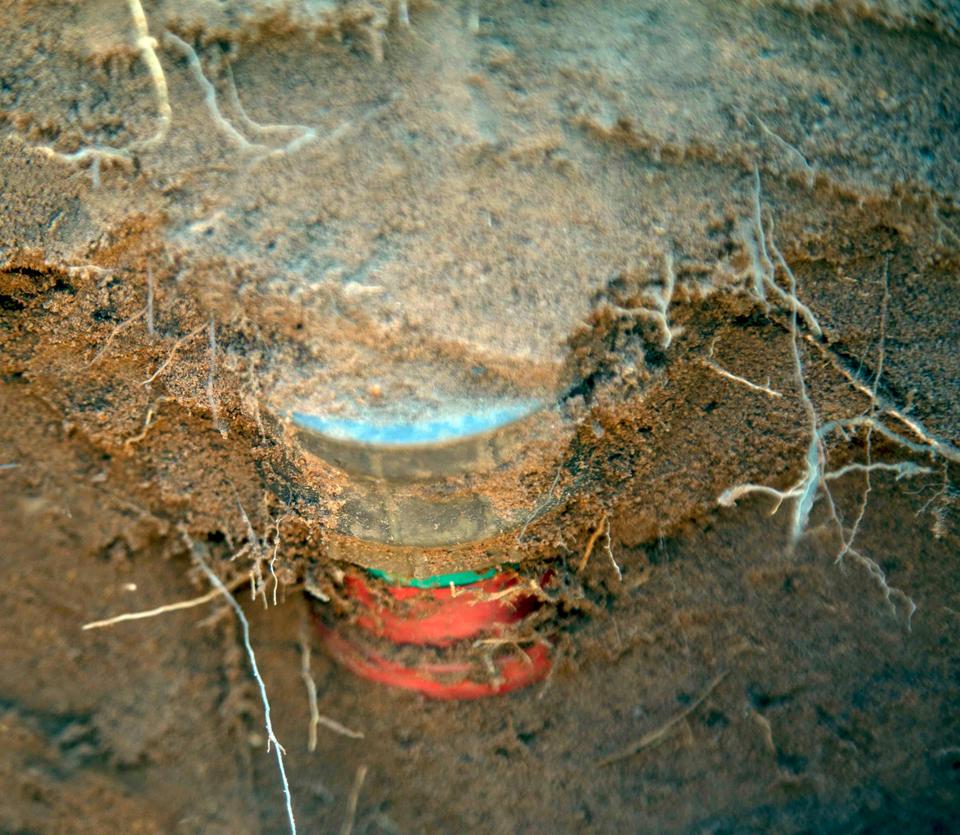Source: International NGO to demine 7 million sqm conservation area in Zimbabwe
APOPO, an NGO operating in countries where there are landmines left over from previous conflicts, is working on a grand-scale project that will help local communities and wildlife in Zimbabwe, clearing more than seven million square metres of land.
The US government has given a grant to APOPO, or Anti-Personnel Landmines Detection Product Development, to clear a dense minefield in Africa.
Working in coordination with the Zimbabwean government, APOPO will be clearing more than seven million square metres of land. This area contains a critical area inside what is now the Great Limpopo Transfrontier Park (GLTP). The GLTP, according to a news release, is the “largest contiguous wildlife area in the world, which spans South Africa, Mozambique and Zimbabwe.”
Zimbabwe has set a deadline for 2025 to be landmine-free. Thanks to the grant from the US government, APOPO has begun work on clearing landmines along the Cordon Sanitaire minefield. The minefield affects the Sengwe Wildlife Corridor, and the clearing process will help both animals that live in the area, as well as the local populations and their livestock. APOPO is hoping to finish clearing the minefield by the deadline the Zimbabwean government has set with additional funding. The government is interested in pursuing ecotourism opportunities.
“We are very enthusiastic and honored to take part in clearing the heavily mined areas along the Zimbabwe, Mozambique border to allow not only local communities use their land freely and without fear, but to allow safe movement for endangered wildlife and support overall conservation efforts,” APOPO Zimbabwe Program Manager Tess Tewelde says in a news brief.

In an email interview with TRT World, Tewelde says he re-joined APOPO in 2020 to take up the role of Program Manager in Zimbabwe and Africa Regional Manager. Tewelde has “over 18 years of experience in the Mine Action sector, which includes 6 years with APOPO Mozambique between 2011 and 2016.”
Tewelde says that with his experience, technical expertise, leadership and networking skills, he plans to further develop APOPO’s Mine Action Programs in Zimbabwe, Angola and Mozambique.
“I do believe mine action is more than just giving humanitarian aid, instead it creates lasting impact by providing communities with access to vital land that can lift them out of poverty,” Tewelde summarises the goal of APOPO. “Making people and land safe is the first step towards rehabilitating communities after conflict. I want to continue helping more vulnerable people to rebuild their lives and livelihoods.”

Tewelde describes the Great Limpopo Transfrontier Park (GLTP) as part of a “bold African vision” to combine three unique national parks by removing all barriers within the area so that wildlife and tourists can roam freely within the huge ecosystem. He says that “The GLTP aims to establish large areas for conservation by integrating vast landscapes and re-connecting ecological systems as well as deploying conservation as a land-use option. The GLTP covers 35,000 km2 and is a critical region for the global population of African elephants.”
Asked if APOPO has been tasked to clear only the Zimbabwe side, Tewelde says yes: “As far as we know the other side doesn’t have landmines – during the Zimbabwe Liberation War of the 70s, the Rhodesian army laid landmines to prevent Liberation forces from entering Zimbabwe from Mozambique.”
He explains that “The Sengwe Wildlife Corridor is a specifically designated area aimed at allowing free movement of wildlife between South Africa’s Kruger National Park and Zimbabwe’s Gonarezhou National Park. The deadly landmines affect the wildlife who call GLTP home. The landmines cause a serious threat to threatened wildlife such as elephants, pangolins, lions, and endangered wild dogs.”

Tewelde foresees a bright future for the area once the area is cleared of landmines: “As a structural barrier, the landmines scare away safari and conservation-focused ecotourism operators. Kruger National Park receives a massive influx of tourists (over 1.8 million visitors each year), which could potentially travel up the Sengwe Corridor and into Gonarezhou National Park without requiring a visa or leaving the conservation area. Currently, Gonarezhou National Park receives virtually no international tourists. If even a small fraction of the Kruger National Park tourists made it to Gonarezhou National Park, the positive economic implications for Zimbabwe would be significant.”
As for the support from the US government, Tewelde hopes to tie APOPO’s work closely with the United States Agency for International Development (USAID) effort to develop a Cross Border Security Plan around Gonarezhou National Park and the Sengwe Wildlife Corridor: “Zimbabwe is a USAID Resilience Focus country and the USAID program provides economic opportunities for communities that are susceptible to climate change and significant economic stresses. The goal is to support countries in their ability to cope with and recover from these shocks while conserving natural resources for sustainable livelihoods.”
While APOPO is more famous for using specially-trained rats and dogs to sniff out mines, this project will be carried out by human deminers. Tewelde says this is because “The minefield is very dense – meaning a lot of landmines very close together, [and] manual deminers are a more appropriate tool for these kinds of minefields.”
According to Telwelde, APOPO finds it very important to hire locally: “95 percent of our staff is recruited in the countries where we have operations. APOPO uses manual deminers (men and women) with metal detectors to find the landmines that have been laid out in very dense mine belts.”
Tewelde ends by saying that the international community “needs to stand together and keep the promise to declare as many countries as possible landmine free by 2025. With increased political will and funding, most mine-affected countries could realise these goals.”
COMMENTS